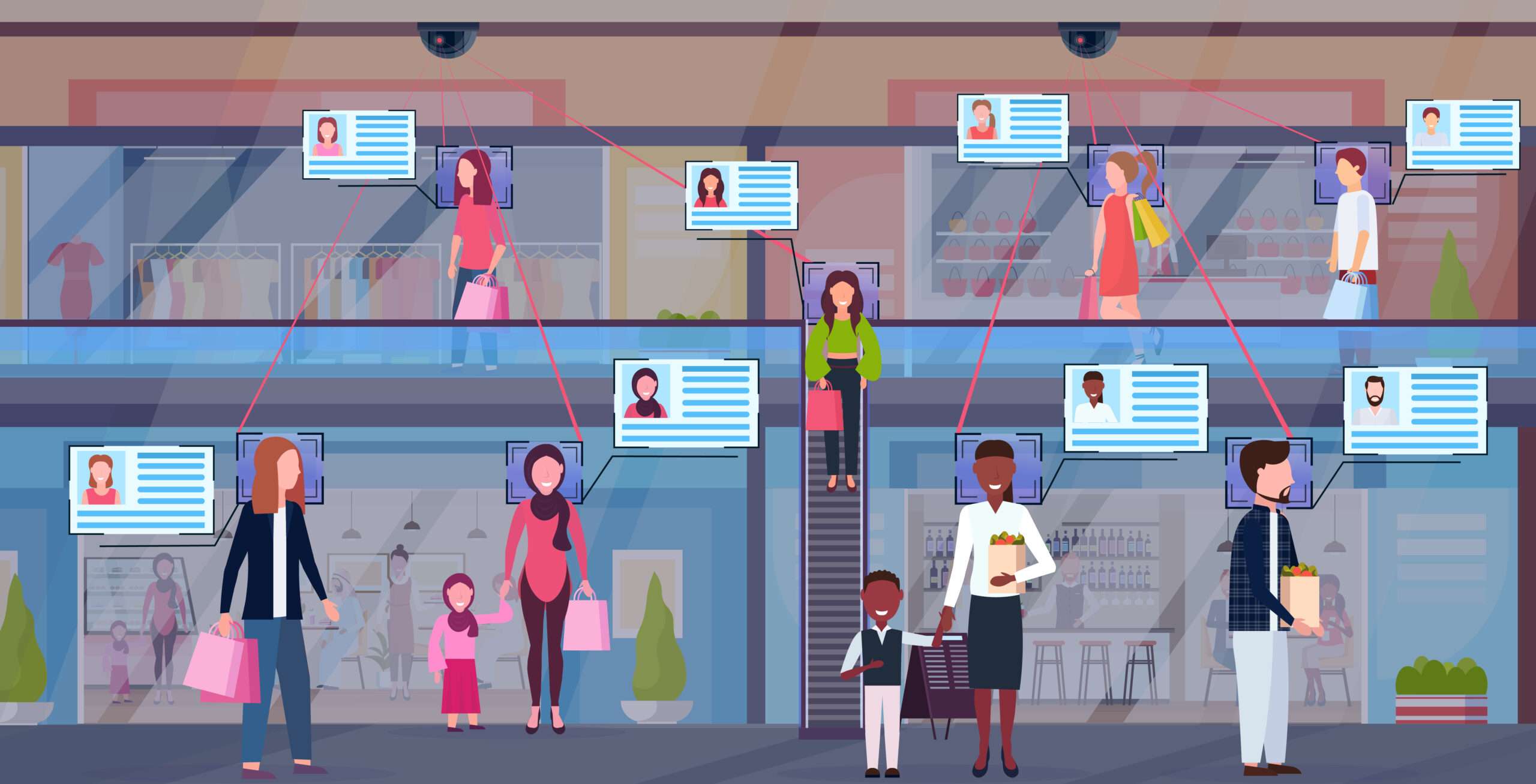
BIPA Class Actions Accuse Major Retail Stores of Scanning Faces of Illinois Shoppers Without Consent
Walmart, Best Buy, Home Depot and Kohl’s face separate class actions under Illinois’ Biometric Information Privacy Act (BIPA). On August 12, 2022, class action complaints were filed in the Northern District Court of Illinois against each of these stores. The BIPA complaints accuse the retail stores of extracting users’ facial biometric data from the images taken by the stores’ surveillance cameras. Allegedly, the stores did not take prior consent from the users, or inform them of this facial recognition.
The four complaints allege that retailers have uploaded shoppers’ faces from their in-store security footage to Clearview AI, Inc.’s biometric database for years.
Do the stores know exactly who you are!
Clearview AI is allegedly the largest facial recognition database in the United States. It consists of billions of pictures that people uploaded to the internet. Clearview’s database allows businesses to use their database to identify individuals using their photographs. The BIPA complaints allege that the accused retail stores, with the help of Clearview AI, performed facial recognition on the shoppers who appeared in their store cameras’ footage.
The lawsuits allege that retailers violated the BIPA by collecting and sharing consumers’ biometric data without disclosure and consent. They also claim that retailers profited from Illinois residents’ biometric data and shared it without consent, violating BIPA. The complaints claim that each of the accused store had access to Clearview’s facial recognition database.
BIPA protects the biometric data privacy of Illinois residents
BIPA requires private entities to obtain informed written consent before collecting, using, or storing biometric identifiers. The BIPA protects information sufficient to recognize a person’s face as biometric information.
Furthermore, the BIPA requires businesses to publish a retention schedule for permanently destroying consumers’ biometric data. Disclosing “specific purpose and length of term for which such biometric identifiers or information are being collected, stored, and used.”
Any private entity that violates the BIPA may have to pay Illinois residents up to $5,000 for each such violation. Hence, each time a facial recognition runs on a person’s image may be a separate violation. Or each visit to an accused store could qualify as a separate violation, or maybe even more than just one violation.
The BIPA Class Actions seek to represent all Illinois residents who visited any of these stores
The proposed classes can potentially include all Illinois residents whose biometric data was captured, collected, received, or used by these stores. Any Illinois resident whose face was captured by the store’s security camera would be a class member.
If you are an Illinois resident who visited any of the accused stores, you are eligible to be a class member. You can be a member of the class for each of these stores that you visited in the last five years. You may also be eligible to receive money from any rewards or settlements in the cases as a class member.
Register for the free weekly newsletter from ClassActionNews.com. We’ll keep you posted on the updates in these cases.
BIPA Class Actions throw light on the rising trend of biometric data collection
Class actions filed over the past few years allege a variety of BIPA violations. The complaints raise serious allegations about modern day biometric data collection practices. In many cases, Courts have ordered the Defendants to pay huge compensations to the affected class. While in many others, Defendants have chosen to settle with the class to avoid litigation.
Snapchat settled a BIPA class action for $35 millions. While Google agreed to a $100 million settlement in a case, and Facebook settled another for $650 millions. TikTok agreed to a $92 millions settlement in another BIPA class action.
Now that many businesses use biometric time keeping systems which require employees to scan their fingerprints to clock-in or clock-out. If done without prior written consent, this may violate BIPA. Consequently Class Actions alleging this particular violation have been on the rise.
Some well-known businesses accused of taking employees’ fingerprints in violation of the BIPA include McDonald’s, KFC, Taco Bell, and Pizza Hut.
Are other businesses also collecting your biometric data, possibly without consent? Read our investigation on how your Biometric Data Privacy might be at risk and how the laws can help you in securing your biometric data privacy.
You can also secure your Biometric Data Privacy
Quite possibly, businesses may be using your facial biometric data without your consent as well. Your biometric privacy may be at risk too.
If you are an Illinois resident, you may be eligible to collect money as a BIPA class member. Or you may even file a class action under the BIPA yourself.
Certainly all of us interact with various businesses which collect and use our biometric information for authentication, or authorization. Many a times even without our knowledge or informed consent.
Illinois residents can bring actions under the Biometric Information Privacy Act and recover up to $5,000 for each instance of violation they suffered.
Residents of certain other states could also find similar remedies under their state laws. For instance, California’s CCPA and CPRA offer similar protections to Californians. Multiple consumers have filed class actions alleging similar privacy violations under these laws as well.
We can help in investigating your data privacy claims. Please contact us to consult a class action lawyer at ClassActionNews today.
Subscribe to our weekly Newsletter and stand a chance to recover up to $5,000 too.
